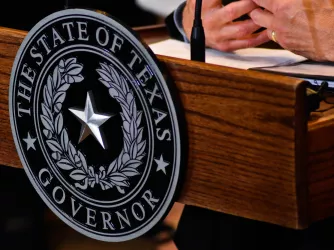Table of Contents
U. of Delaware Opts for Tobacco Policy That Won’t Hinder Researchers and Student Groups

Earlier this year, the University of Delaware (UD) considered a tobacco-free campus policy that contained a provision (PDF) that would have forbidden “[u]niversity programs, departments, and student organizations, including campus publications … from accepting money, advertising, and gifts from tobacco companies.” Thankfully, after a UD professor spoke up about the overly broad reach of this provision, the university dropped this language from the policy and implemented a version more respectful of free speech and academic freedom on August 1.
Campus tobacco-free and smoke-free policies do not typically raise concerns for FIRE. This limitation on accepting funding, however, could have significantly hindered the activities of professors and student groups, particularly those with certain viewpoints, with no discernible benefit—at least not one consistent with First Amendment principles.
First and foremost, a ban on campus publications accepting advertising from tobacco companies may well violate their First Amendment rights—particularly because the provision didn’t specify that the advertising be for tobacco. Even if that were the case, courts (PDF) have found that the First Amendment does not allow public universities to prohibit alcohol advertisements in university publications. In protecting the right of two Virginia student newspapers to run such ads, the United States Court of Appeals for the Fourth Circuit wrote that because a large portion of students reading the publications are over the age of 21, the ban “prohibits large numbers of adults … from receiving truthful information about a product they are legally allowed to consume.” This is all the more true for advertisements for tobacco, since tobacco may legally be purchased by 18-year-olds.
To explain further why the proposed provision was troubling, it’s also helpful to take a look at what happened at UD way back in 1990, when the university tried to prohibit two professors from conducting research using funding from the Pioneer Fund.
As detailed in The Shadow University, the groundbreaking book by FIRE co-founders Alan Charles Kors and Harvey Silverglate, UD Professor Linda Gottfredson aimed to investigate whether employment policies should ignore racial classifications; she believed individuals should be considered in relation to the entire pool of applicants, rather than others of the same race. Because this topic generates such controversy, funding options can be more limited. But the Pioneer Fund was on board to fund Gottfredson’s project, in addition to funding a number of other researchers in higher education.
The Pioneer Fund, however, had origins that didn’t sit well with UD administrators. It was founded in the 1930s and its charter, discussing awards of scholarships, advocated for preferential treatment to be given to “children who are deemed to be descended predominantly from white persons who settled in the original thirteen states.” Though the word “white” was later removed from this language, and the Pioneer Fund apparently never followed this guideline, UD considered the organization to be racist and discriminatory. It determined that because the organization’s supposed values were contrary to the diversity-related goals of the university, Gottfredson and Jan Blits, another professor to be funded by the Pioneer Fund, could not receive that planned funding.
Kors and Silverglate wrote in The Shadow University:
[T]he [faculty] committee not only ruled on what the Pioneer Fund actually believed, but it decided that certain inquiries and conclusions by Gottfredson (or others) were outside the protection of academic freedom: “If the University agrees to act in partnership with any organization committed to the proposition that people of different racial and cultural backgrounds are inherently unequal, then that partnership restricts the ability of people from all backgrounds to be treated as fully equal participants in the University community.” Could such a ban violate “a more fundamental commitment to free and open inquiry”? No, the committee decided, because the “commitment to racial and cultural diversity is an essential part of, not a rival principle in conflict with, [its] commitment to the right of all people to participate in an environment of free and open inquiry.”
Torch readers have seen enough to know that efforts to promote a particular type of diversity often curtail constitutionally protected expression in ways that defy common sense. FIRE’s many cases on the subject demonstrate the danger of letting the goal of diversity and comfort trump principles of free expression on issues relating to race. Yet UD was deliberately impeding research because it disapproved of the results and the conclusion it expected to see from Gottfredson, based on what it interpreted as the views of the funding organization. This not only halted Gottfredson’s work, but also had the potential to chill research on a wide number of topics for which funding might come only from controversial or disfavored organizations.
Fortunately, the American Association of University Professors (AAUP) recognized these profound implications for academic freedom and stepped in, filing a grievance with the American Arbitration Association. The federal arbitrator agreed and ruled in favor of Gottfredson, Blits, and the AAUP. In 1992, Kors and Silverglate wrote, “the national AAUP proclaimed the banning of funding from an agency because of its beliefs or commitments incompatible with academic freedom.” Further, they conclude, “The very intractability of racial tension should prevent us from closing any door of inquiry into its roots and mechanisms.”
The proposed tobacco-free policy draft from January of this year would have presented problems similar to UD’s prohibition of the use of funding from the Pioneer Fund. For example, the university can ban smoking, but as a public institution bound by the First Amendment, it can’t ban a student organization from advocating for a change in smoking laws. (This is similar to the lesson FIRE hopes Iowa State University will soon learn through our Stand Up For Speech litigation project, in which members of the student chapter of the National Organization for the Reform of Marijuana Laws are defending their First Amendment rights.) Nor can it prohibit professors from conducting research relating to tobacco—and it is doubtful that campus policymakers would decide to deprive faculty and students of tobacco company funding for any reason other than the desire to discourage certain viewpoints about tobacco.
What would have complicated matters further is that it is unclear what would have constituted a “tobacco company.” This question was presented by an English professor attending the faculty senate’s open hearing on the policy conducted on March 10 (about 30 minutes into the audio recording on UD’s website), but as far as FIRE can tell, was not answered. Altria Group Inc. (formerly Philip Morris), for example, has owned enormous food and drink companies including Kraft and General Foods in addition to maintaining its tobacco business. Would professors researching foods produced by companies associated with organizations that also manufacture tobacco products be cut off from funding from those companies even if the research had nothing to do with tobacco? If not, the policy would clearly hinder research based on content. If so, the policy would inhibit a broad range of research for no compelling reason.
The tobacco-free policy originated in UD’s student government in late 2012 and was considered in its problematic form for several months. FIRE commends UD for ultimately changing the policy to comport with principles of academic freedom. Though First Amendment problems were avoided this time, it is critically important that all public colleges and universities understand that this sort of restriction on funding is not a permissible means of trying to curtail certain types of research or advocacy.
Recent Articles
FIRE’s award-winning Newsdesk covers the free speech news you need to stay informed.

Right, left, and in-between: Can we bring our differences to the table?

Gov. Greg Abbott’s order ‘hardening state government’ against China is dangerously hard to parse

From the UK to Germany to Singapore: Police are watching what you post
